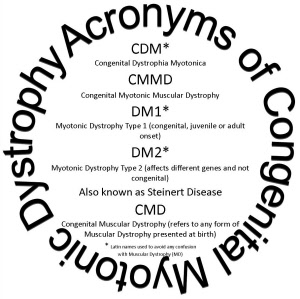Cure DM strives to support and fund (where possible) research which meets our charitable aims. As a small charity we are not yet in a position to fund full projects, but are happy to contribute where we can.
When deciding to fund a project we must meet the following aims:
To preserve and protect good health among, and relive the needs of, people living with Myotonic Dystrophy, their families and carers, in particular but not exclusively by:
* providing information, help and support to such people and their families and carers;
* making financial donations to support organisations and individuals carrying out research into Myotonic Dystrophy, the useful results of which will be published for public benefit; and
* raising awareness of Myotonic Dystrophy within the general public, medical and scientific communities.


Disclaimer:
"This site is owned and operated by CureDM, which is a registered charity. Nothing contained in this site is or should be considered, or used as a substitute for medical advice, diagnosis or treatment. The site owners and administrators cannot accept any legal or personal liability for the outcomes of actions taken by you in using this information. This site and its information do not constitute the practice of any medical, nursing, registered dietitian or nutritionist, or other professional health care advice, diagnosis or treatment.
All items and articles are written by individual authors. The opinions expressed are entirely the authors' own, except where clearly indicated. We strongly advise you to speak with a medical professional about all aspects of the condition."